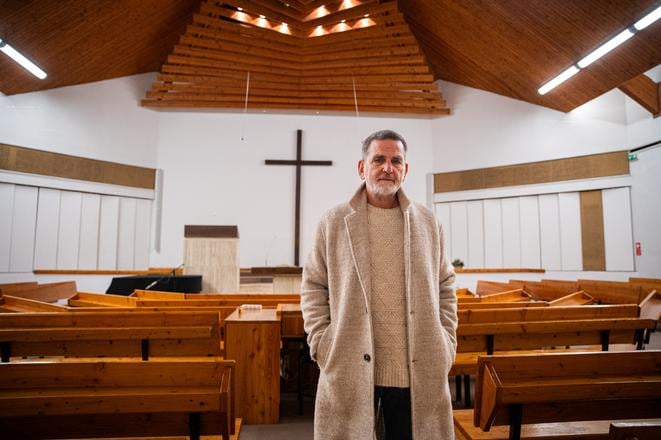The past year can be seen as one of political attacks, hate speech, and deepening societal bubbles. This is why preacher Daniel Pastirčák observes a growing sense of despair among people he encounters.
However, he reminds us that not only during Christmas but throughout the year, people are most deeply affected by wounds in their closest relationships—betrayals in love, conflicts, misunderstandings, and alienation between parents and children.
How is Slovakia doing?
Slovakia is living under its most dangerous and regressive government since the Velvet Revolution—a leadership that threatens freedoms hard-won in 1989. It feels as though the country has shifted into reverse, back to a pre-democratic era.
In many ways, this was not unexpected. The return of Robert Fico’s government, along with its network of “our people”—a term often used to describe those tied to corrupt prosecutors, judges, and police—was bound to be turbulent. Their primary goal appears to be shielding their allies from accountability.
Equally unsurprising is this government’s shameful, even treacherous, stance towards Ukraine. Those who call the actions of Slovakia’s leadership akin to treason may not be far from the truth. We live in a time when Russia—a great power and former Soviet empire—is once again dreaming of reclaiming its lost influence, seeking to restore its sphere of control. Slovakia, uncomfortably, could be its first target.
Across Slovakia, we are witnessing the persecution of professionals in culture, environmental protection, and even security forces. People who dared to speak out against the country’s flaws have lost their jobs. But how do we move forward and create a better Slovakia?
The first thing I notice when speaking with people is the overwhelming sense of hopelessness. Many feel that despite years of striving for a democratic and lawful state, things only seem to be getting worse.
Yet, it seems to me that what weighs most heavily on people isn’t solely the political or societal challenges. Regardless of their ideological bubble, people are most profoundly affected by personal wounds—betrayals in love, conflicts, misunderstandings, and estrangement between parents and children.
We often chase after our goals and ambitions, focusing on ourselves, but when Christmas comes, we expect to gather around the table in an atmosphere of closeness and peace. Yet, the reality is that the table will only reflect what already exists in our relationships. If there is estrangement, betrayal, or emotional scars, those will sit with us at the table too.
The festive season often brings us together, but how do we ensure that sitting around the Christmas table is more than just a façade of unity? How do we avoid a scenario where today we share a meal, and tomorrow we return to discord?

 Daniel Pastirčák (source: SME - Marko Erd)
Daniel Pastirčák (source: SME - Marko Erd)